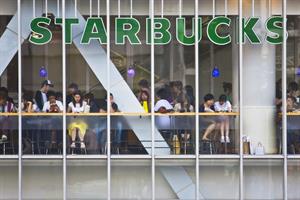All signs are pointing in the same direction: The U.S. is headed toward a recession.
Brand leaders’ waning confidence in the economy was the sublayer of conversation at Cannes Lions in June. As the stock market continues its unpredictable trajectory and CMOs face a multitude of uncertainties, it’s critical we bring the recession into perspective now by focusing on what we know.
What do we know?
When we examine previous recessions, we discover economists and strategists tackled the same issues brands are facing now. During the 2008-2009 Great Recession, a 2009 Harvard Business Review article, “How CMOs Should Function in a Recession,” addressed shifting consumer behavior and how to stretch marketing dollars by “coming up with creative ways to do more with less.” Sounds all too familiar.
Much has changed since 2009, of course. New technologies and innovative processes have emerged, enabling a global and distributed 24/7/365 workforce.
What hasn’t changed? The need for people, technology and processes to be the central focus of developing a recession plan, set in motion by seasoned business leaders who are recession-experienced, brand caretakers at heart.
Competing for talent and consumer loyalty
In a recent Gartner study, 58% of CMOs surveyed reported their teams lack the capabilities required to deliver their (brand) strategy. Internal resources are suffering, not for the lack of skill set, but for lack of manpower. The Great Resignation is still here, and according to Bloomberg’s latest U.S. employment data, shows no signs of slowing down. In April 2022, 4.4 million Americans voluntarily left their job. Gartner confirms 2022 continues to experience a historic surge in talent demand, even with a recession on the horizon.
Marketing leaders cannot afford a reduction in force when their internal resources are already strained. What options do they have? Being authentic and empathetic with employees to improve morale and retention is important, but so is rethinking and adapting marketing resources without sacrificing competitive edge. As a brand’s internal capacity fluctuates, an external marketing partner can offer strategic solutions at-scale with creative content production as campaign needs ebb and flow.
The pandemic’s shutdowns set in place the domino effect on supply chain shortages, and in response, consumers shrugged off brand loyalty to use what they could find. Shopping behaviors that at first were molded around health and safety concerns are now ecommerce norms. Brands will face even fiercer competition during a recession. “A risk to one brand in losing a loyal shopper is now an opportunity for another to engage a new customer and actually build brand loyalty,” states Barbara Connors, 84.51°’s VP of Consumer Insights in a recent interview.
What are consumers looking for? “With inflation at a record high, more people are looking for value; price is at the top of the list of consumers’ motivations for switching,” states a recent McKinsey & Company report. Consumers will always respond to price and value. But more than ever, consumers are experience-driven and want to connect with brands in new ways. A recent Forbes article reiterates, “Online shoppers expect a full brand experience when making their decisions — and brands that don’t deliver could lose to those that do.” The brands that are omnichannel-competitive will be those that make quick decisions based on consumers’ shifting behaviors and have an agile marketing partner who knows how to implement the right strategies with the right creative at the right time.
Utilizing marketing technology to implement lean processes
We witnessed the rise and fall of brands based on their ability (or inability) to be agile and adapt to rapid change during the pandemic; eCommerce early adopters and laggards being great examples. A crisis naturally accelerates the need for innovation; we witnessed this with the development of a COVID-19 vaccine and businesses’ increased use of digital, virtual and cloud technologies. In the same way, a recession will accelerate brands’ necessity to embrace marketing technology and implement lean processes in their marketing strategies.
With the pandemic behind and the recession ahead, brands should ask, “Do we have the right tools needed to plan and manage production, at-scale and on budget?” Marketers who have access to technology-based solutions to create, execute and analyze deliverables during a campaign’s entire lifecycle will enable brand buoyancy during the recession.
As much as the metaverse, virtual advertising and AI dominate the future of advertising, technology also has a place in consulting, strategizing, planning and producing. If there is another benefit like innovation that comes from crises, it’s that brand leaders are motivated to seek marketing processes that are efficient and effective. Assessing each process at every touchpoint ensures workflows are tight and fit for purpose, and that employees and vendors make the best use of their time. When considering most work is done remotely and across global locations and cultures, having clear and simple processes in place will always add value to the marketing ecosystem.
The businesses that do well in a recession will be the ones that prepare now and pivot by thinking differently, move quickly and work efficiently with a creative production partner that is in alignment with a brand’s culture, strategy and core values.










